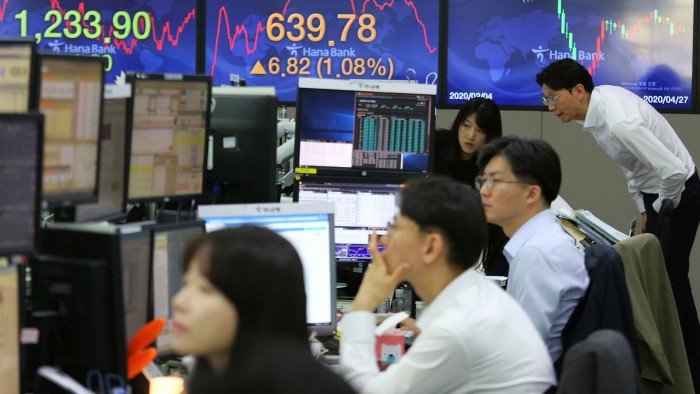Asia’s biggest market for ESG debt hit by ‘greenwashing’ concerns

Simply sign up to the ESG investing myFT Digest -- delivered directly to your inbox.
Asia’s fastest-growing market for debt billed as “socially responsible” has drawn criticism after data showed the vast majority of this funding has been raised for jobs and housing rather than the environment.
South Korea has for several years been one of the world’s hottest markets for debt raised according to environmental, social and governance principles. Banks, industrial groups and the government have repeatedly touted the benefits to society from the Won64.7tn ($54.7bn) in ESG notes issued since May 2018.
But less than 3 per cent of the funding has been focused solely on environmental projects, South Korean stock exchange data shows, raising concerns over “greenwashing” and weak regulatory oversight.
Of 426 ESG notes issued over the past three years, only 22 raised debt for “environmental” purposes, while 387 were labelled “social”, meaning the funds likely went towards the vaguer objectives of supporting job growth, helping businesses and boosting housing, KRX data showed. The remaining 17 notes were classified as “sustainable”, meaning the proceeds can be used to fund either environmental or social projects.
Auditors who have assessed the notes said one problem was that South Korean regulators had not set up a framework for verifying ESG issuance. This has resulted in few checks on whether the funding ultimately goes toward helping reduce greenhouse gas emissions. Issuers do, however, tend to follow one of several global guidelines, such as those from the International Capital Market Association.
“For now there is no regulation or guideline from the government,” said Sohn Ju-hyun an analyst with KPMG’s sustainability practice in Seoul. “We hope that those kind of guidelines [become] available.”
In one example, only a small part of a $500m “sustainability bond” issued by Korea Gas Corporation was allocated to low-carbon transport projects. Most of the rest had the objective of job creation “within the natural gas industry value chain”.
The concerns come as South Korea overtook China as the region’s biggest issuer of ESG bonds in 2020, according to Bloomberg-compiled data on Friday. About $11.9bn of the notes have been issued in Asia’s fourth-biggest economy this year, compared to $9.5bn in Japan and $9bn in China.
Worries over the Korean market, which come against a backdrop of rising investor concern about carbon emissions and climate change, underscore broader challenges of opaqueness in ESG investment products and the lack of globally-followed standards.
Bertrand Jabouley, director of sustainable finance at S&P Global Ratings, said a big issue with any sustainable debt instruments is how proceeds are managed and the underlying benefits measured.
“It is good to have an auditor, or other third parties assuring there is no greenwashing — ie no leakage of proceeds towards less sustainable uses than promised,” Mr Jabouley said.
He added that while there have been efforts “to harmonise standards to establish a lingua franca” there remains “no such thing as a globally-applied sustainable label”.
In Seoul, KPMG has urged the Financial Services Commission, South Korea’s top financial regulator, to become more involved in the matter.
“Ideally the FSC should be engaged because it would be more powerful . . . rather than just [a government ministry] setting the standards,” said KMPG’s Ms Sohn.
Comments